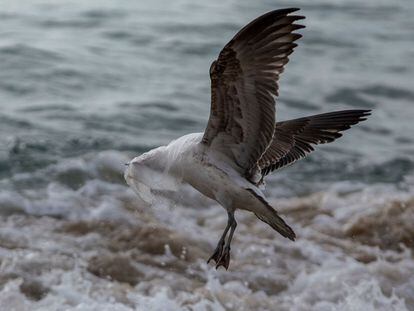The Ministry for the Ecological Transition has just sent the draft Royal Decree on packaging and waste to the European Commission for Brussels to give its approval.
Among the measures included in the text is the obligation of the promoters of festive, cultural and sporting events to implement alternatives to the sale and distribution of packaged beverages and single-use cups, "also guaranteeing access to non-packaged drinking water ” starting next year.
This measure is in line with what is already established in the Waste Law approved in March, which obliges all hotel establishments in the country to make free tap water available to customers.
Both the law and the royal decree that the Government is finalizing now pursue the same thing: reduce waste and encourage reuse and recycling.
When the norm is definitively approved in the Council of Ministers —something that the Ecological Transition hopes will happen before the end of the year— it will also be prohibited for retail stores (supermarkets and neighborhood stores) to sell packaged fruit when its weight do not exceed 1.5 kilograms.
In addition, establishments with more than 400 square meters will allocate at least 20% of their sales area to products that are marketed in bulk.
With this decree, a deposit, return and return system will also be gradually implemented for some reusable containers in shops.
And, if some recycling objectives are not met, this model will also be mandatory for single-use packaging, something that environmentalists have been asking for years and that Ecoembes rejects,
bricks
.
One of the reasons why the Government has had to transfer the text to Brussels, which has already been submitted to public information, is that the approval of this royal decree was part of the commitments that Spain acquired before the Commission to receive the funds of the Next Generation program for recovery from the covid crisis.
In addition, Spain has three open infringement files for the non-transposition of several European directives on waste and packaging that should be filed after the approval of this royal decree and the Waste Law, according to sources from the Ministry of Ecological Transition.
free water
The latest version of the draft royal decree on packaging, to which EL PAÍS has agreed, states that "establishments in the hotel and restaurant sector will always offer consumers, clients or users of their services the possibility of consuming non-drinking water." packaged free of charge and complementary to the offer of the same establishment”.
This underpins what was already established by the Waste Law.
Free tap water was demanded by environmental groups and consumer organizations.
OCU, for example, has applauded the measure and recalls that failure to comply with this obligation enables the user to request the claim sheet, which can end in a sanction for the establishment.
More information
More than 140 million tons of plastics already pollute the planet's rivers, oceans and lakes
A few days ago, the OCU also requested that this measure be extended to open-air music festivals and sporting events.
In the latest version of the Ecological Transition packaging royal decree, it opens precisely that door, since it establishes the obligation of the promoters of these events to guarantee "access to non-packaged drinking water" to customers.
Sources of Ecological Transition specify that these promoters must do so for free in the event that "they have access to the municipal drinking water network."
Some music festivals are already moving in this direction and banning plastic water bottles, a container that is becoming one of the symbols of contamination by said material, an environmental problem that is increasing every year.
But the obligation to offer free tap water is just one of the many measures included in the royal decree, which sets specific goals for this decade.
For example, the ministry sets a goal "that all packaging placed on the market be recyclable by 2030 and, whenever possible, reusable."
In the case of single-use plastic bottles for any type of beverage, the latest wording of the royal decree proposes that by 2030 their marketing must have been reduced by 20% compared to 2022 levels. In this section, in the version that was exposed to public information a few months ago, the proposed reduction was 50%, but ministry sources acknowledge that this goal has been softened after listening to the sector in the allegations process.
Many of the measures will entail important changes in supermarkets and retail stores, where reusable containers that the client will return in exchange for a small deposit or that they will take from home to be refilled will become more and more common.
The return system for which this deposit will be charged for each container will be applied first to reusable containers and then will be extended to single-use containers, if the recycling data for Spain does not evolve positively.
Fraud
The royal decree seeks to end the existing opacity in the recycling sector.
Producers and distributors are currently responsible for waste management and those who handle data.
But there is a certain risk of “fraud”, as stated in the preamble of the regulation that finalizes Ecological Transition.
For this reason, an official register will be created and "all producers will be required to register and submit information on the placing of containers on the market on an annual basis".
The objective is that the Administration can accurately know the percentage of packaging that is recycled.
The labeling will also change and must clearly express what type of waste each container is and the container where it should be thrown away.
In addition, the marking of containers with the expression "environmentally friendly" or any other equivalent "that may lead to its abandonment in the environment" is prohibited.
And those that are compostable —which go to the brown container— will bear the indication “do not leave in the environment”.
Finally, when they are made up of different materials and are easily separable, "consumers must separate them and deposit them in the corresponding fraction or container."
You can follow CLIMA Y MEDIO AMBIENTE on
and
, or sign up here to receive
our weekly newsletter












